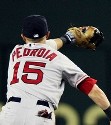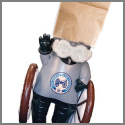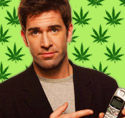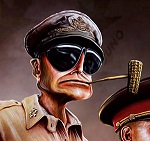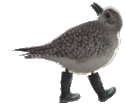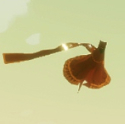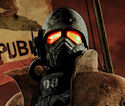|
Nemesis Of Moles posted:So I'm really on a history kick now, burning through a few of the suggestions in this thread and it has me thinking; Are there any books about native american history? Is there much about that sort of thing at all? I'm basically wholly ignorant of an entire continent's history pre-1600s. 1491: New Revelations of the Americas Before Columbus by Charles C. Mann is very good. Here's an article Mann wrote a few years before publishing the book that talks about the things that eventually ended up in his book.
|
|
|
|

|
| # ? Apr 18, 2024 08:29 |
|
Spuzzz posted:Can anyone recommend a book on the history of religions? I'm looking for something that talks about how how various religions borrow from each other and are intertwined. You might want to check out Karen Armstrong. She's got a bunch of stuff that might fit what you need. Also The World's Religions by Huston Smith. Read that in college.
|
|
|
|
Thesaurus posted:I recently listened to A Savage War of Peace: Algeria 1954-1962 by Alistair Horne, and it was tremendous although quite long from an audio perspective! I've read that, it was excellent. If you want to learn a bit more about the French-FLN conflict, try The Battle of the Casbah: Terrorism and Counter-Terrorism in Algeria 1955-1957, by Paul Aussaresses. Aussaresses was one Massu's key lieutenants in Algiers, and he was responsible for carrying out a lot of the worst things the French military did fighting the FLN. He's surprisingly candid about the tortures and executions he oversaw, and gives a really good overview of how the French military approached the Algerian issue and how they justified their campaign. It can be pretty shocking at times, but if you're interested in the topic I'd really advise having a look at it.
|
|
|
|
Are there any books someone can recommend that are good primers on The fall of the Second Spanish Republic and the Spanish Civil War? It seems to be a really fascinating topic but I know little about it other than the war was won by Franco and that Hitler had a hand in supporting him.
|
|
|
|
Boondock Saint posted:Are there any books someone can recommend that are good primers on The fall of the Second Spanish Republic and the Spanish Civil War? Antony Beevor wrote a reasonable introduction to the Spanish Civil War: http://www.amazon.com/The-Battle-Spain-Spanish-1936-1939/dp/014303765X It was pretty well received in Spanish circles largely because it was largely viewed as one of the genuinely successful/balanced accounts made by an outsider. There might be better general histories out there, try looking for a concise history. For American/foreign involvement on the side of the Spanish Republic, I would recommend the following http://www.amazon.com/The-Odyssey-Abraham-Lincoln-Brigade/dp/0804722773/ref=sr_1_1?s=books&ie=UTF8&qid=1335932302&sr=1-1 http://www.amazon.com/Comrades-And-Commissars-Lincoln-Battalion/dp/0271029102/ref=sr_1_2?s=books&ie=UTF8&qid=1335932302&sr=1-2 These are pretty excellent books on the Abraham Lincoln Brigade, the few hundred American volunteers who joined up (they were largely communists and socialists) to fight Franco. If you feel really ambitious, you can take a crack at The Spanish Republic At War 1936-1939 that is very much a heavy academic work, but examines very well (as far as I've read thus far) the difficulties the Second Republic had in the 1930s before the military rebellion. http://www.cambridge.org/us/knowledge/isbn/item1145241/?site_locale=en_US
|
|
|
|
AeroZeppelin posted:I read Battle Cry for a grant I'm doing in Grad School as well. Are you apart of the TAH grant? Yes! Pretty sad that the funding is getting pulled from them.
|
|
|
|
Is the Ian Kershaw two part biography the best place to start reading about Hitler?
|
|
|
|
Its a great overview, my professor of the third reich in college assigned it.
|
|
|
|
I have the abridged version of that two part bio (Ian Kershaw. 2010. Hitler: A biography.). It was a good overview, and for a newbie like me, had totally enough or even too much information about our dear Adolf. quote:Kershaw’s two-volume biography Hitler, subtitled 1889–1936: Hubris (1999) and 1936–1945: Nemesis (2000), ranks among the most significant of its kind; only biographies by Joachim Fest and Alan Bullock are in Kershaw’s league. For this abridgment of his opus, Kershaw stripped out its scholarly apparatus, reduced verbatim quotations from primary sources, and added an essay of reflections on his approach to the study of his infamous subject. With these changes, the abridgment retains two themes of Kershaw’s full-scale original: analyzing the political support the demagogue mustered from the populace and key institutional centers of Germany on his ascent to and exercise of power; and the decisive personal role of Hitler in instigating World War II and genocide. I am reading at the moment Gitta Sereny's biography of Albert Speer. As Speer had really close relationship with Hitler, it would not make a bad read for people interested in Hitler's personality and workings of his inner clique. I have to say, altough I have read only about 30% of it, Sereny's book is one of the best (perhaps even the best), and influential books I have ever read on any subject fact or fiction
|
|
|
|
I've just finished the Sereny book. For those unaware of it: Speer was Hitler's architect and later the minister for armaments. He was the only one charged at Nuremberg to admit guilt and arguably the most senior figure to escape execution. During his imprisonment, he kept copious notes and afterwards wrote widely about his experiences. Sereny interviewed and his circle for more than a decade, producing this wide-ranging examination of Speer and the world he lived in. Of course it's not a fun read: it's a serious matter and grim in parts. It's long (700+ pages of close type) and dense (lots of dates / times / places and examining the same events from multiple sources). I found I had to be reasonably alert to read it and not just let the details wash over me. But it is fascinating with Speer witness to the rise of Nazism, the progress of the war and machinations within the government. Sereny has a few noticeable authorial tics (e.g. frequently commenting on the beauty of the female interviewees she likes) and avoids easy answers, but the book deserves its reputation.
|
|
|
|
After reading the book, how do you feel about the nature of the relationship between Hitler and Speer? It doesn't matter in the big picture, but I found it interesting e.g. that she described the relationship of those two "erotic not sexual" and emphasized that "Speer was not gay" (How does she know that?). Haven't finished the book yet, but it just adds some strange twist that feels like a bizarre Romeo and Juliet story taking place in the depths of deepest abyss...
|
|
|
|
It's an interesting point. Sereny's statement that Speer was not gay is probably correct - if he was gay, he never seemed to act upon it and there's some events in the last 10 pages of the book (seriously) that draw a picture of him as almost asexual through most of his life. (A trait you might also ascribe to Hitler.) And I'm not sure that a lack of evidence for Speer not being gay, means evidence that he was gay. Which leaves us with the idea that his relationship with Hitler was "erotic not sexual". And I'm not really sure what that means. I'm adverse to the "magical" explanations of Nazism and Hitler's rise to power (e.g. Hitler had a hypnotic presence, was incredibly charismatic, fooled a nation, etc.) because they seem to be at best descriptions and at worst hand-waving. It seems as if there was some intense relationship between Hitler and Speer, created by shared interests and shared history. Hitler admired Speer for his architecture and - later - his phenomenal organizational skills. Speer was desperate for success and attention. The two fit perfectly together and needed each other. We don't really have words for those intense friendships, yet perhaps that is what we have here.
|
|
|
|
You are right but I would be lying if I said the romantic and sexual (whatever that means in the end of the day) explanation to their relationship isn't "appealing" to me. But that is only tiny, tiny aspect of this awesome book. Anyway, here is the miniseries that made me purchase the book in the first place: http://www.youtube.com/watch?v=g34KPWFhfXo The miniseries is very strange in that it has snippets of actual documentary (interviews of Speer's children etc) interpersed with acted scenes but the acting is still really top notch. I would even dare to say that Hitler's actor rivals the one in Untergang.
|
|
|
|
I got a friend into Lies my Teacher Told me, and while he is enjoying it, he asked me to see if I could find any books that are basically what Lies is advertised as, a bunch of snippets of history that we all 'Have wrong', traditionally speaking, like the Columbus myth Lies goes over for example. Any ideas?
|
|
|
|
I'm not an expert in lovely history books, but I can tell you the textbooks that Loewen used for his critique (listed in the appendix of my revised edition): Social Science Staff of the Educational Research Council of America, The American Adventure 1975 Ira Peck, Steven Jantzen, and Daniel Rosen, American Adventures 1987 John A. Garraty with Aaron Singer and Michael Gallagher, American History 1982 Thomas A. Bailey and David M. Kennedy, The American Pageant 1991 Robert Green, Laura L. Becker, and Robert E. Coviello, The American Tradition 1984 Nancy Bauer, The American Way 1979 Robert Sobel, Roger LaRaus, Linda Ann De Leon, and Harry P. Morris, The Challenge of Freedom 1990 Allan O. Kownslar and Donald B. Frizzle, Discovering American History 1974 Carol Berkin and Leonard Wood, Land of Promise 1983 Philip Roden, Robynn Greer, Bruce Kraig, and Betty Bivins, Life and Liberty 1984 Paul Lewis Todd and Merle Curti, Triumph of the American Nation 1986 James West Davidson and Mark H. Lytle, The United States—A History of the Republic 1981 Joyce Appleby, Alan Brinkley, and James McPherson, The American Journey 2000 David M. Kennedy, Lizabeth Cohen, and Thomas A. Bailey, The American Pageant 2006 Gerald A. Danzer et al., The Americans 2007 Andrew Cayton, Elisabeth Perry, Linda Reed, and Allan Winkler, America: Pathways to the Present 2005 Daniel Boorstin and Brooks Mather Kelley, A History of the United States 2005 Paul Boyer, Holt American Nation 2003 Basically he makes it sound as if every history textbook used in the USA had serious distortions.
|
|
|
|
Nemesis Of Moles posted:I got a friend into Lies my Teacher Told me, and while he is enjoying it, he asked me to see if I could find any books that are basically what Lies is advertised as, a bunch of snippets of history that we all 'Have wrong', traditionally speaking, like the Columbus myth Lies goes over for example. Any ideas? I have on my shelves a very unenjoyable one called "I love Paul Revere whether he rode or not".
|
|
|
|
Maksamakkara posted:Anyway, here is the miniseries that made me purchase the book in the first place: http://www.youtube.com/watch?v=g34KPWFhfXo I had no idea such a thing existed. Thanks - I'm going to watch this.
|
|
|
|
Looking for a good history of The Troubles in Northern Ireland, with a particular focus on the Provisional IRA and other Republican groups. Doesn't have to cover the whole period but prefer a broad focus rather than a biography or something similar. Bonus points if it's available on Kindle.
|
|
|
|
silly posted:Looking for a good history of The Troubles in Northern Ireland, with a particular focus on the Provisional IRA and other Republican groups. Doesn't have to cover the whole period but prefer a broad focus rather than a biography or something similar. Bonus points if it's available on Kindle. How far back to you want it to go? Pre-war Fenianism and the Irish Republican Brotherhood sort of time, or the beginnings of the more recent troubles? EDIT: Actually who cares. It's been a year or so since I read about it, but I remember The Provisional IRA by Patrick Bishop and Eamonn Mallie, The Long War by Brendan O'Brien, and Provos: The IRA and Sinn Fein by Peter Taylor were all pretty good for the slightly more recent stuff. Crewmine fucked around with this message at 01:19 on May 17, 2012 |
|
|
|
Nemesis Of Moles posted:I got a friend into Lies my Teacher Told me, and while he is enjoying it, he asked me to see if I could find any books that are basically what Lies is advertised as, a bunch of snippets of history that we all 'Have wrong', traditionally speaking, like the Columbus myth Lies goes over for example. Any ideas? I recently started reading "The Way we Never Were: American Families and the Nostalgia Trap" by Stephanie Coontz. It compares what we think of as "traditional" family values with historical data. I haven't finished it yet, but it's pretty interesting so far. Another book along similar lines that I haven't read yet is "The Best War Ever" by Michael Adams, which is about the romanticized view that many people have of WWII, contrasted with the historical realities. I'm interested in reading this, but haven't picked it up yet, so if anybody's read it, let me know how it is.
|
|
|
|
Crewmine posted:How far back to you want it to go? Pre-war Fenianism and the Irish Republican Brotherhood sort of time, or the beginnings of the more recent troubles? Was looking for post-civil war stuff ya, thanks for the recommendations, I will check them out.
|
|
|
|
wins32767 posted:Can someone recommend some works on Western Europe and North Africa from ~500AD-1000AD? I've done a tiny bit of reading on the Franks and Visigoths, but nothing on Italy, Germany, or England and the whole period fascinates me. Chris Wickham's The Inheritance of Rome: A History of Europe from 400-1000 is a good, recent place to start.
|
|
|
|
dokmo posted:1491: New Revelations of the Americas Before Columbus by Charles C. Mann is very good. Here's an article Mann wrote a few years before publishing the book that talks about the things that eventually ended up in his book. I finished this one recently and it is very, very good.
|
|
|
|
Finished Norwich's The Popes and I agree with Bryter, it's pretty great. Picked up Blood, Iron & Gold by Christian Wolmar after that. Didn't like it very much, but I think that's because the scope was a bit too ambitious (a history of railroads in about 300 pages[despite which I managed to get a sense that it was too repetitive]), so it came out a bit disjointed. Has anyone read his Fire And Steam? I'm currently reading (and immensely enjoying) Jerusalem the Biography by Simon Sebag Montefiore. Ostensibly a history of Jerusalem, a fair part of the book is devoted to overviews of the various rulers of Jerusalem (Jews, Romans, Arabs, Crusaders, Turks, Jews again, etc.). It's a very casual book, most chapters are 20 pages at most so it's very easy to put down/pick up frequently.
|
|
|
|
BlueDiablo posted:Antony Beevor wrote a reasonable introduction to the Spanish Civil War: Question time: Am I the only person who thought Band of Brothers by Stephen Ambrose was a terribly-written book? Boomer The Cannon fucked around with this message at 02:23 on Jun 4, 2012 |
|
|
|
Boomer The Cannon posted:Question time: Am I the only person who thought Band of Brothers by Stephen Ambrose was a terribly-written book? It's horribly sentimental, as are most of Ambrose's books. D-Day is okay, but Citizen Soldiers is pretty bad because it struggles to reconcile his obvious heroification of the American soldier with the fact that the US Army performed pretty terribly in Europe (outside of elite troops like the Rangers and Airborne). Armageddon by Max Hastings is a much better treatment of the same subject matter.
|
|
|
|
BlueDiablo posted:Antony Beevor wrote a reasonable introduction to the Spanish Civil War: I would also recommend Beevor's book, I found it fairly well written and certainly comprehensive. You may be confused for a while trying to keep track of all the various anarchist/socialist/marxist groups/movements in the beginning, each of which has their own acronym. It wasn't as enthralling as "Stalingrad" by the same author, but I suppose it's not as "dramatic" a topic. He certainly captures how sad and incredibly wasteful of a war it was. I am also looking for recommendations for a couple of historical topics: I am interested in the war of the roses, though primarily for the military history. The various comings and goings of monarchs never interested me as much. I am also wondering if there have been any works written on the Soviet invasion of Japanese occupied Manchuria near the end of WWII. I presume it was kind of a one sided blitz, but I am curious about those two nations colliding at that point given their history with each other.
|
|
|
|
Speaking of Beevor, he has a one-volume history of the Second World War coming out tomorrow. 880 pages.
|
|
|
|
Finished The Last Days of the Incas the other day. I really enjoyed the fifty or so years it spent in Peru, less so the tales of Twentieth century exploring that bookend it. I would still really recommend it, Manco Inca is the coolest guy who ever married his sister.
|
|
|
|
Just started (listening to) Tim Weiner's Enemies: A History of the FBI, and it promises to be very interesting. I really enjoyed his Legacy of Ashes: The History of the CIA. I'm not usually a fan of single topic histories. Perhaps it's the intrigue-laden subject matter, but Weiner has a way of making a history of a government agency a real page turner. His journalistic training comes through in a good way, in that he knows how to tell a fast moving story with contemporary interest. I'm usually wary of books written by journalists because they can be superficial and light on in-depth research. At the same time, some scholarly histories can be a total drag and kill any innate interest in the topic. Weiner does a good job spanning this gap. With that said, I'm not shedding any tears that Enemies, at 560 pages, is about 300 pages shorter than Legacy of Ashes... For anyone interested in more history of the CIA and its recent shenanigans, I can highly recommend Steve Coll's Ghost Wars: The Secret History of the CIA, Afghanistan, and Bin Laden, from the Soviet Invasion to September 10, 2001. Ahmed Rashid's Descent into Chaos: The US and the Disaster in Pakistan, Afghanistan, and Central Asia more or less picks up where Ghost Wars leaves off, and it's an interesting and detailed read, although a bit less compelling and more sprawling than that book. Any Steven Kinzer fans? For those interested in learning about all of the crappy stuff the US has done abroad in the last 100 or so years, I advise you to check him out. Overthrow: America's Century of Regime Change from Hawaii to Iraq is a lot of fun and a good overview of American coups. It includes quick accounts of incidents that he covers in more depth in his other books, especially in his most excellent coverage of Iran, All the Shah's Men: An American Coup and the Roots of Middle East Terror. One of my favorite books. I'd love to read his Blood of Brothers: Life and War in Nicaragua and Bitter Fruit: The Story of the American Coup in Guatemala, but I haven't gotten around to them because they aren't available in audiobooks and I've gotten lazy these days. Kinzer's books on contemporary issues are interesting and very well written (all of his books read like novels), but I think they are more open to criticism than his historical accounts. I really enjoyed A Thousand Hills: Rwanda's Rebirth and the Man Who Dreamed It and learned a lot from it about Rwanda, especially the genocide. To a lesser extent I would recommend Reset: Iran, Turkey, and America's Future and Crescent and Star: Turkey Between Two Worlds. You'd probably be better off going with a more contemporary book about Turkey (2002). "Reset" synthesizes a lot of material from "Cresecent and Star" and "All the Shahs Men" and then makes some less substantiated policy recommendations, but it's an interesting read in its own right. Christ, in retrospect I've read a lot of this guy's books. Overall, he does an excellent job of making his books interesting, compelling, and well researched. Dr. Gene Dango MD posted:Finished The Last Days of the Incas the other day. I really enjoyed the fifty or so years it spent in Peru, less so the tales of Twentieth century exploring that bookend it. I would still really recommend it, Manco Inca is the coolest guy who ever married his sister. Definitely a great book, although for some reason I never finished it after getting about 2/3 the way through. I read it while travelling through Peru last summer and it added a lot to the experience. Thesaurus fucked around with this message at 20:26 on Jun 5, 2012 |
|
|
|
Any lovers of Will and Ariel Durant? I'm making my way through their "Age of Voltaire" right now and absolutely loving it. He's probably my favorite historian at this point. He had a great sense of humor. I regularly find myself chuckling as I read his books. Raskolnikov2089 fucked around with this message at 21:08 on Jun 5, 2012 |
|
|
|
Can anyone give recommendations for books similar to Ken Burns' PBS documentary on the prohibition? I've recently been interested in how the Depression/Prohibition era in the United States, negatively affected food quality in the nation, which I've been hearing some people such as Tyler Cowen and Michael Pollan mention (although it's probably not a new concept, it's novel to me). Bonus points for audiobook or ebook versions, thanks! 
|
|
|
|
coyo7e posted:Can anyone give recommendations for books similar to Ken Burns' PBS documentary on the prohibition? I've recently been interested in how the Depression/Prohibition era in the United States, negatively affected food quality in the nation, which I've been hearing some people such as Tyler Cowen and Michael Pollan mention (although it's probably not a new concept, it's novel to me). I believe Last Call by Daniel Okrent was a pretty big source for the film. I enjoyed the book, but I don't recall it going into food production. I'd also be interested in reading more if anyone else has a suggestion.
|
|
|
|
coyo7e posted:Can anyone give recommendations for books similar to Ken Burns' PBS documentary on the prohibition? I've recently been interested in how the Depression/Prohibition era in the United States, negatively affected food quality in the nation, which I've been hearing some people such as Tyler Cowen and Michael Pollan mention (although it's probably not a new concept, it's novel to me). I can't give you any specific suggestions, but I can say that the temperance movement was much larger than just prohibition in the USA and there must be a thousand interesting stories. A friend tells me that Alcohol and Temperance in Modern History: An International Encyclopedia is a standard text (selling for 22 bucks at amazon). Prohibition came out of the 19th century temperance movement in England: Brian Harrison's Drink and the Victorians: The Temperance Question in England 1815-1872 is a scholarly history of this period (there is a kindle version). For me the most interesting part of Last Call was the stuff on the Anti Saloon League -- looking around at amazon, I see that they have K. Austin Kerr's Organized for Prohibition: A New History of the Anti-Saloon League for a few bucks used.
|
|
|
|
I just finished The San Francisco Calamity by Earthquake and Fire, which was written by a reporter, Charles Morris, from eyewitness accounts immediately after the 1906 earthquake. It's absolutely insane how much of the city burned down, but this may just be of interest to me since I live here. The pictures are pretty mindblowing too.
|
|
|
|
Raskolnikov2089 posted:Any lovers of Will and Ariel Durant? Yup! I'm reading Caesar and Christ now, and have both The Story of Philosophy and The Life of Greece for when I finish. One nice thing is how easy it is to find Durant's books at used bookstores.
|
|
|
|
Pb and Jellyfish posted:
Richard Frank's Downfall has a chapter on it. The whole book is great if you want to understand the end of the war in the pacific, including how and why the decision to use the nukes was reached. You don't necessarily have to agree with his conclusion (that the nukes were justified and probably the most "humane" way to end the war), but I found his arguments pretty good and his attention to detail is astonishing. There are layers upon layers upon layers of factors which determined events in and around Japan in 1945, and he takes you through all of them.
|
|
|
|
A year or so ago, my grandpa lent me his copy of Cesare Borgia: His Life and Times by Sarah Bradford. I had no idea who the guy was, but my grandpa insisted I'd enjoy and, and holy poo poo was he right. I seriously had no clue how ridiculously corrupt the Papacy was at the time, and it seriously read more like a history book about a soap opera than anything else. I was expecting it to be drier than dry, and instead I get a book about a total nutcase who's favorite thing to do was murder random people and raise armies to go take over half of Italy while simultaneously threatening and trying to court Spain and France. Plus, the rest of his family, including his dad Pope Alexander VI, carved a path through Italy via drinking, orgies, non-orgy-related boning, feasting, killing people, and all of it paid for with Church gold, or indulgences that Alexander was selling like hotcakes. I know there's a TV show now about the Borgia family, and I really need to watch it because I seriously want to see this stuff in action. Another cool thing is that it has excerpts of Machiavelli's letters to the Medicis, because he was sent as an envoy to Cesare after Cesare started taking everything over. The excerpts quickly go from "This guy is a pretty brilliant tactician" to "He's got good ideas but I'm not too sure of his mental state" to "No, seriously guys, this dude is completely batshit, we probably want to, you know, prepare against him or court him with goods or do SOMETHING because we don't want him marching on Florence, like, ever." Lolitas Alright! fucked around with this message at 01:51 on Jun 8, 2012 |
|
|
|
 I'm making my way through this book right now. I'm just under halfway through, but it's amazing so far. It's about this woman, Deborah Sampson who disguised herself as a man and fought in the Continental Army. I had never heard of her (I wish I had) before I picked up this book. Her original biography was written by a man quite fond of making poo poo up and plagiarizing. It's amusing to go through things she may or may not have done and see "No, she probably didn't do this. He seems to have stolen this from Hannah Snell" over and over again. He enjoyed adding chaste lesbian romances too it seems. The guy published several editions of this (changing dates, adding more made up poo poo, adding more sexiness), but I believe Sampson asked him not to publish the second one until she was dead. Somehow I'm not surprised. I think soon after this I want to look into the Aztecs, particularly their mythology and their general culture. I'd love recommendations, though I'm not 100% if this thread is the right place to ask. Caustic Chimera fucked around with this message at 02:09 on Jun 11, 2012 |
|
|
|

|
| # ? Apr 18, 2024 08:29 |
|
beanbrew posted:Yup! I'm reading Caesar and Christ now, and have both The Story of Philosophy and The Life of Greece for when I finish. One nice thing is how easy it is to find Durant's books at used bookstores. The Life of Greece was excellent. I still need to find Caesar and Christ, it's one of the few I'm still missing. Glad to find someone else who enjoys him, I love his writing style.
|
|
|
















